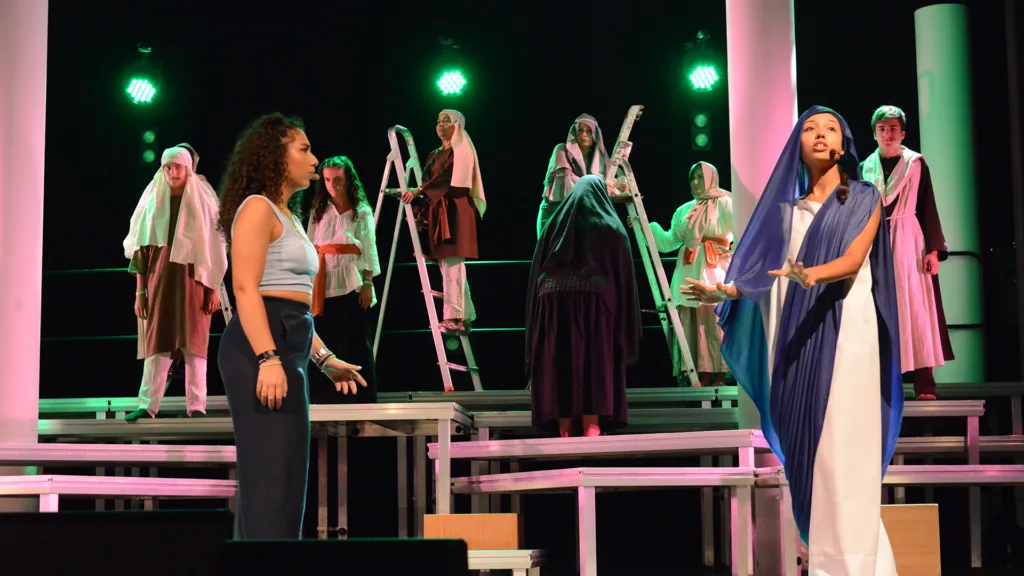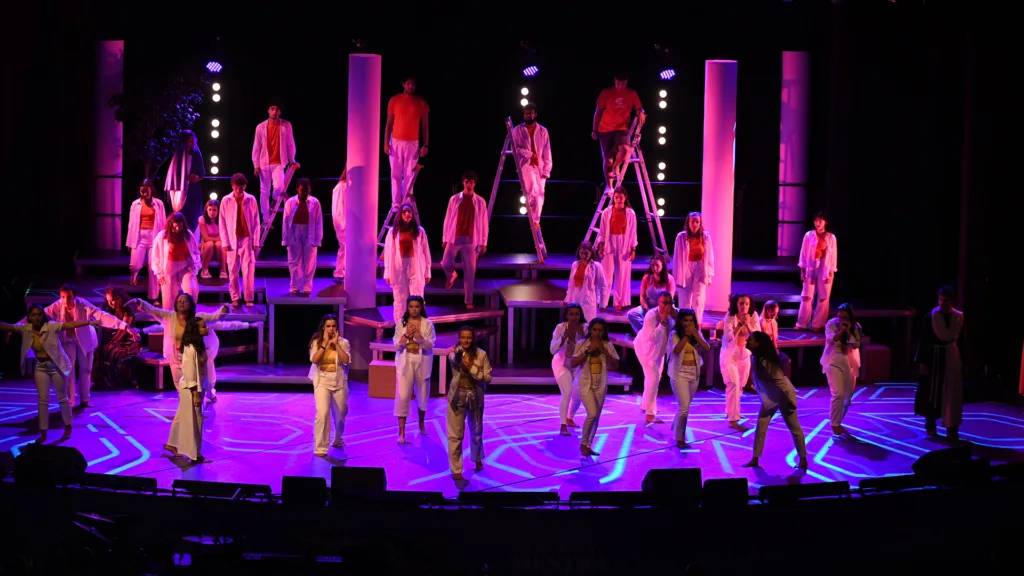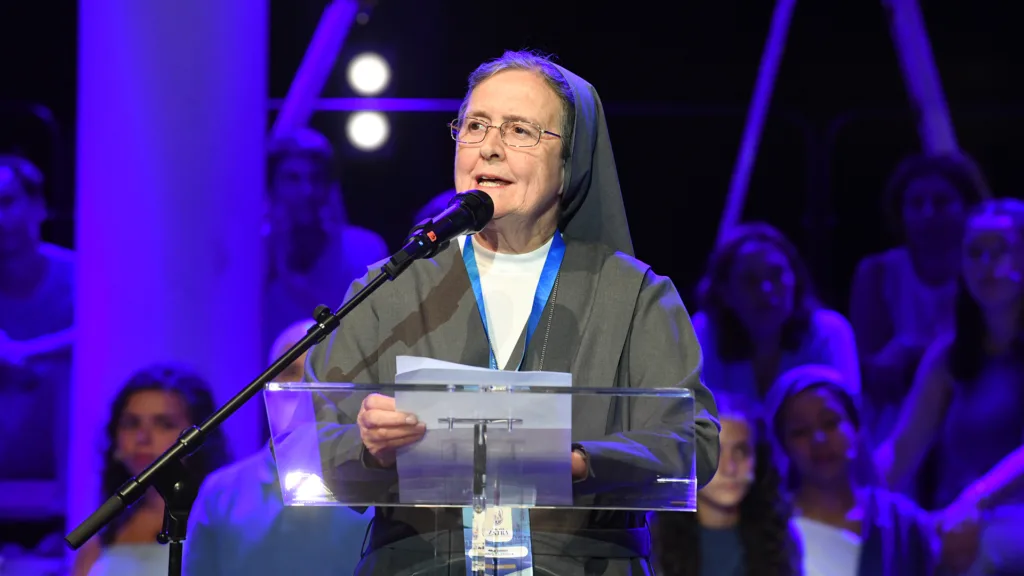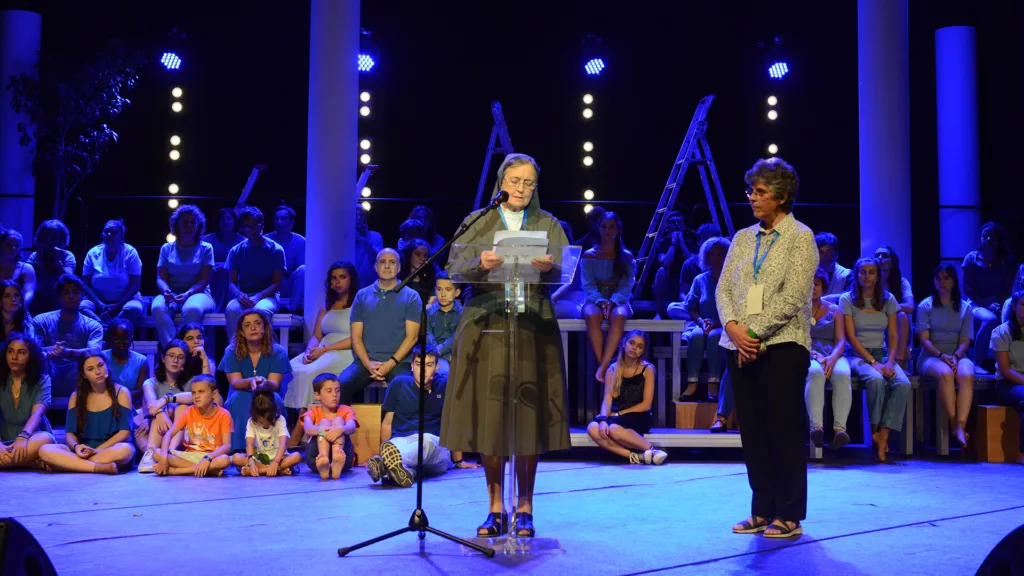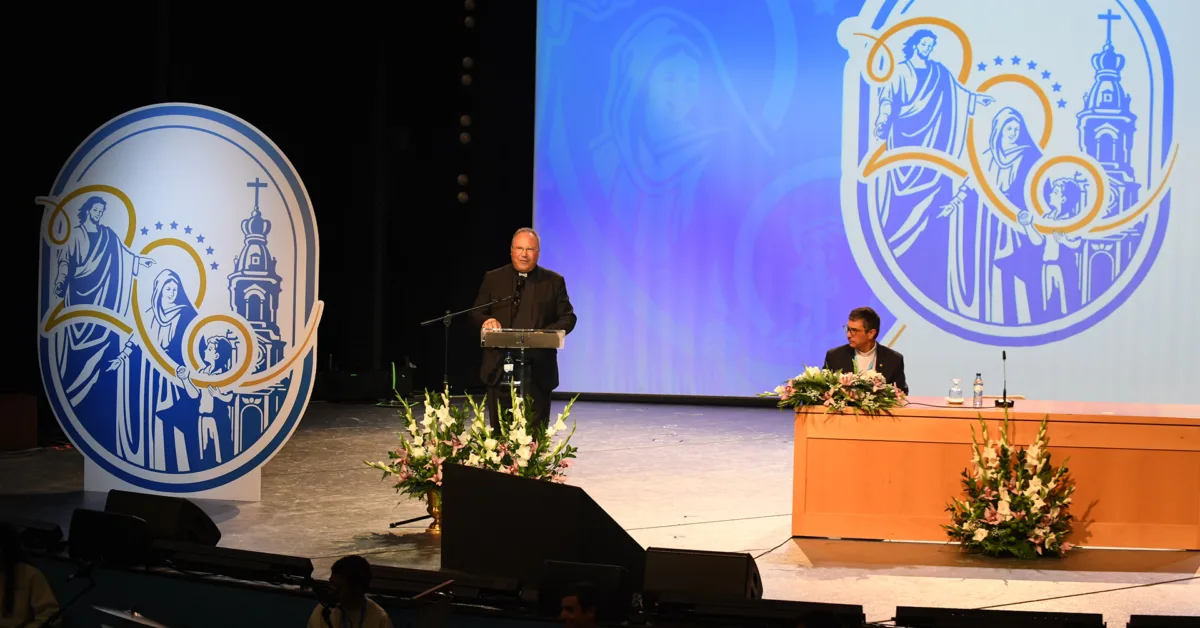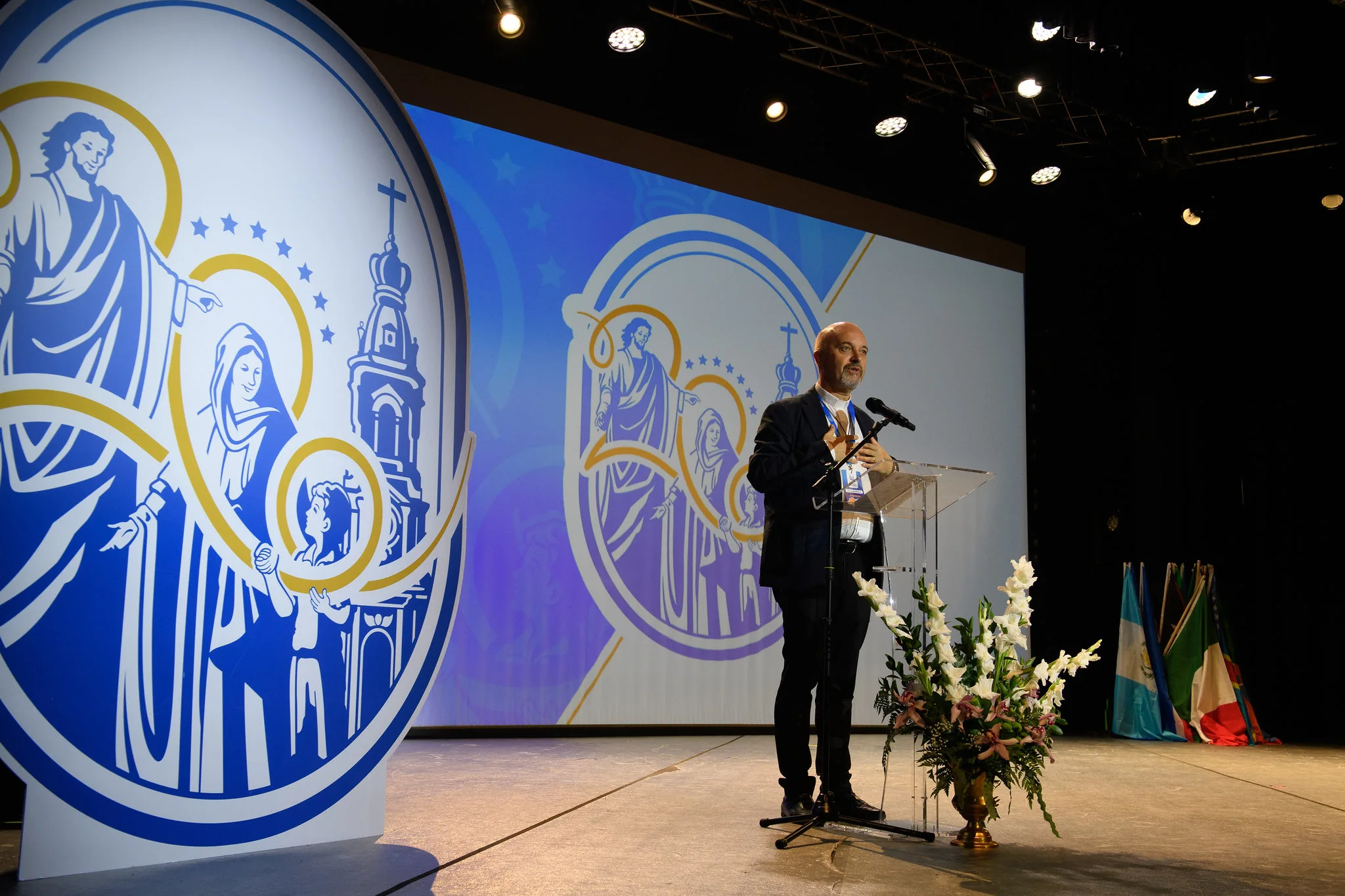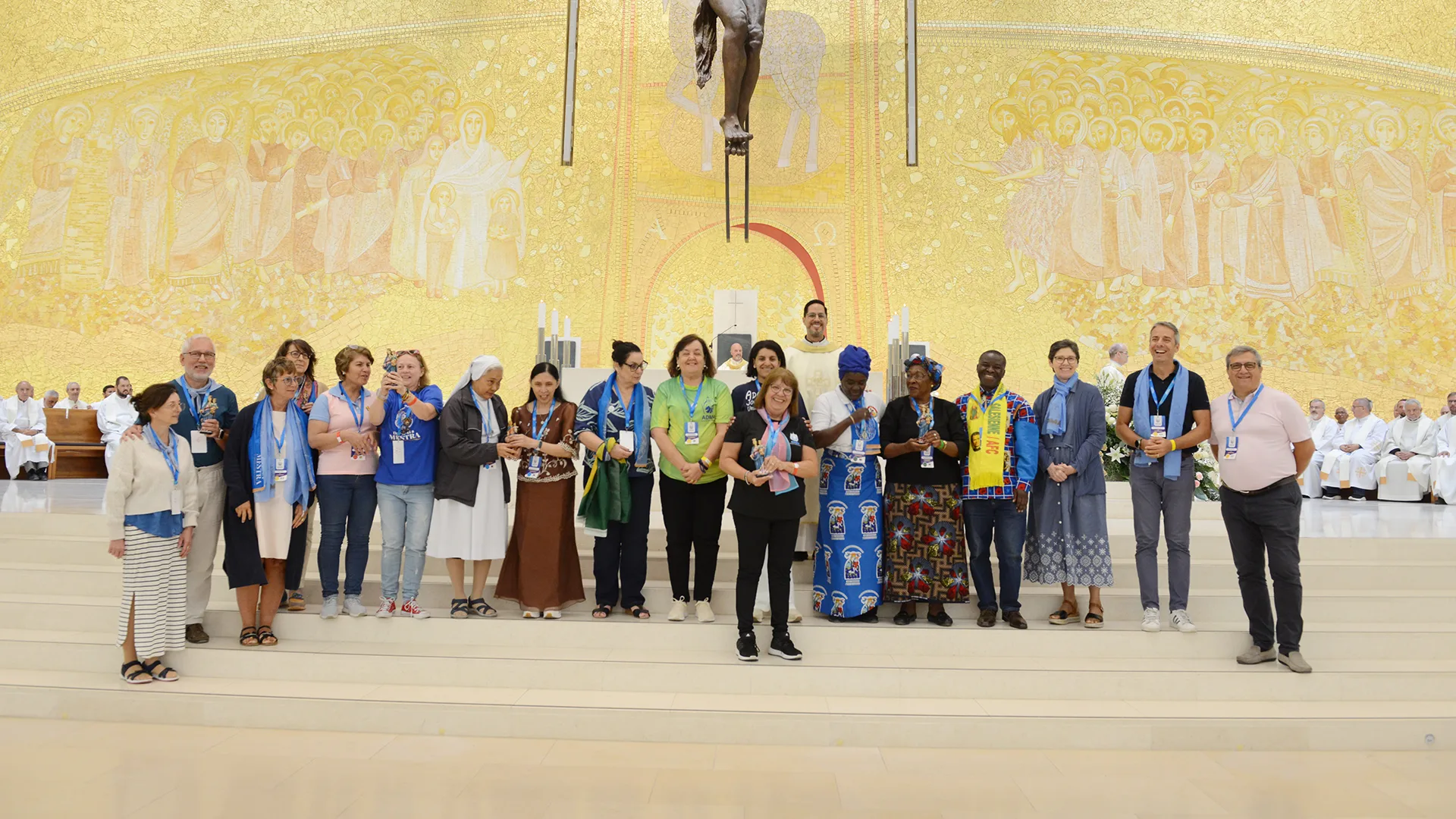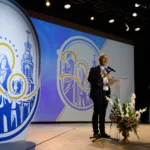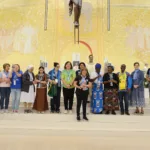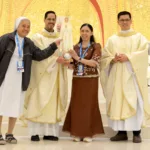The second day of the 9th International Congress of Mary Help of Christians was marked by intense moments of reflection, sharing and prayer. The participants experienced a rich and varied programme that included conferences, testimonies, cultural visits and moments of deep spirituality.
The second day began with the celebration of the Eucharist in the different official languages of the Congress. This was followed by the conference ‘Fatima: history and message’, presented by Fr Carlos Cabecinhas, Rector of the Shrine of Fatima since 2011.
In his speech, Fr Carlos Cabecinhas explored the importance of the apparitions of Fatima in 1917, their interpretations and their relevance to the Christian faith. Emphasising that mariofanias, like Fatima, are often underestimated by theologians, the Rector stressed that in reality, they lead to the essentials of the Christian faith, reflecting the core of divine revelation.
Carlos Cabecinhas, the central message of Fatima emphasises the adoration of the Holy Trinity, the primacy of God, the urgency of conversion and the fundamental role of the Eucharist and Penance. In turn, the apparitions also emphasise the Marian dimension, with a focus on the Immaculate Heart of Mary.
The Rector of the Shrine of Fatima also said that the message of Fatima is seen as an integral spirituality that calls for the centrality of God and the renewal of faith in times of religious indifference. ‘The message of Fatima speaks of God and is for our lives,’ he concluded.
Andrea Bozzolo, Rector of the Salesian Pontifical University in Rome, presented Don Bosco’s ‘Dream of Nine Years’ as a symbol of the Salesian vocation and mission.
For the speaker, Don Bosco’s dream experience is seen as a divine revelation that profoundly moulded his life and mission. In the dream, Don Bosco sees young people in a large courtyard, symbolising the educational mission that would be entrusted to him. The appearance of a Christological figure and the presence of Mary Help of Christians reveal the need for a ‘caring’ and ‘guiding’ approach towards young people, emphasised Fr Andrea Bozzolo.
‘Don Bosco’s mission is an invitation to transform the impossible into the possible, through faith and obedience, revealing the paradoxical character of the divine vocation, where the light of truth is often accompanied by darkness and uncertainty,’ the speaker explained.
In the end, Fr Andrea Bozzolo emphasised that true education and transformation must happen through gentleness and charity, and not through repression and punishment. ‘Don Bosco’s Preventive System is shaped by this approach, reflecting the importance of gentleness and love in the formation of young people, a central principle in Salesian pedagogy and Christian practice,’ he emphasised.
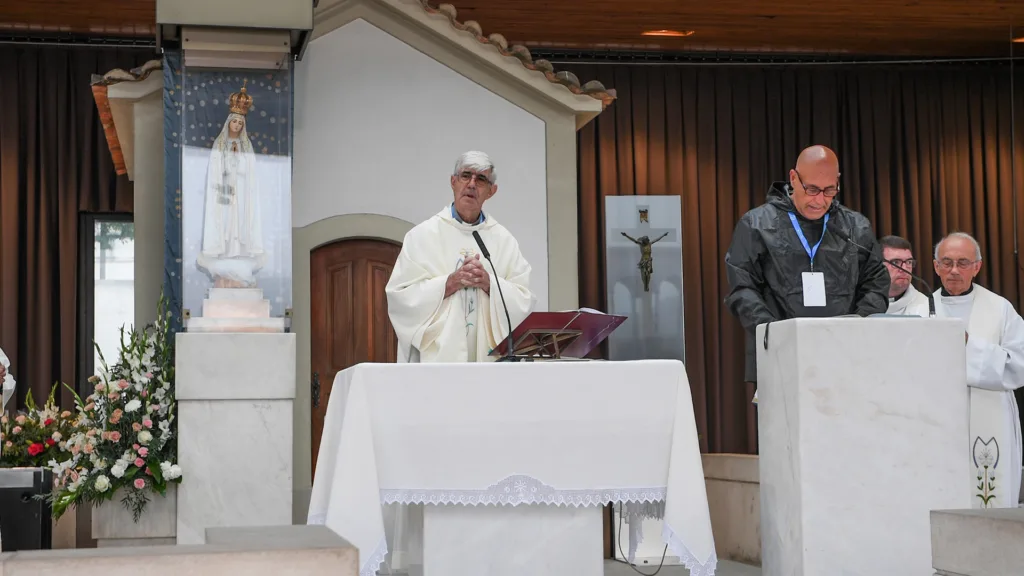
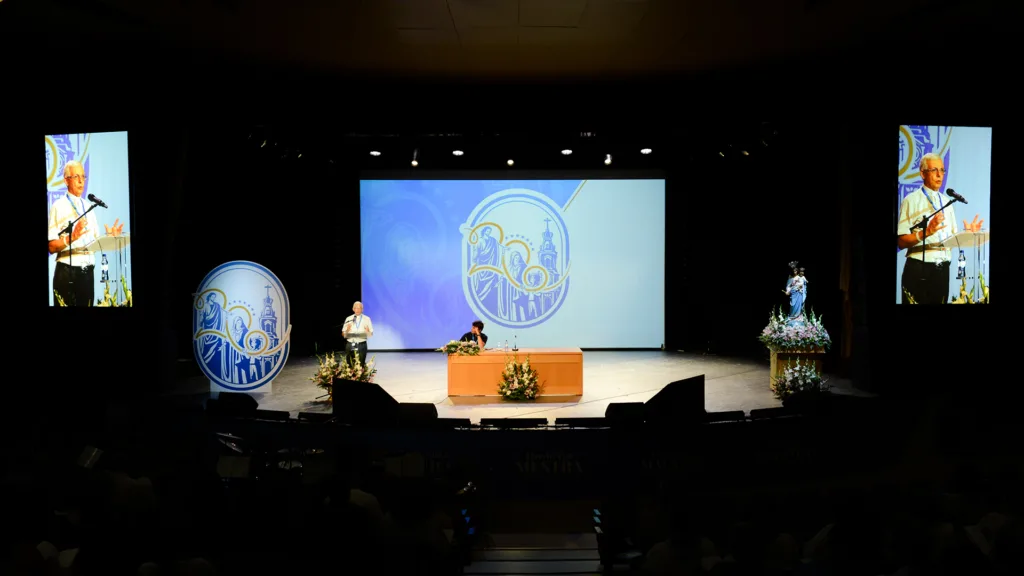
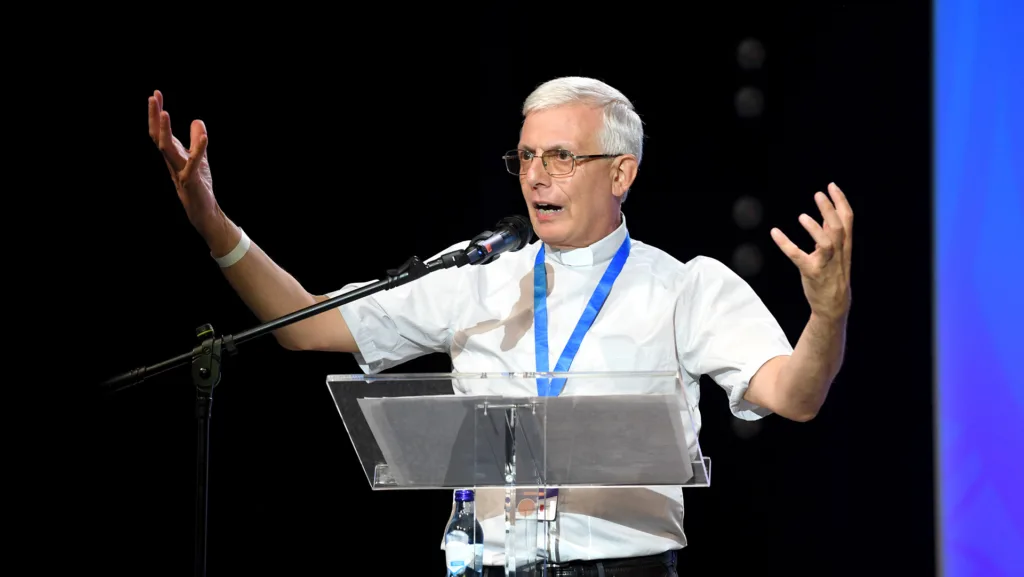
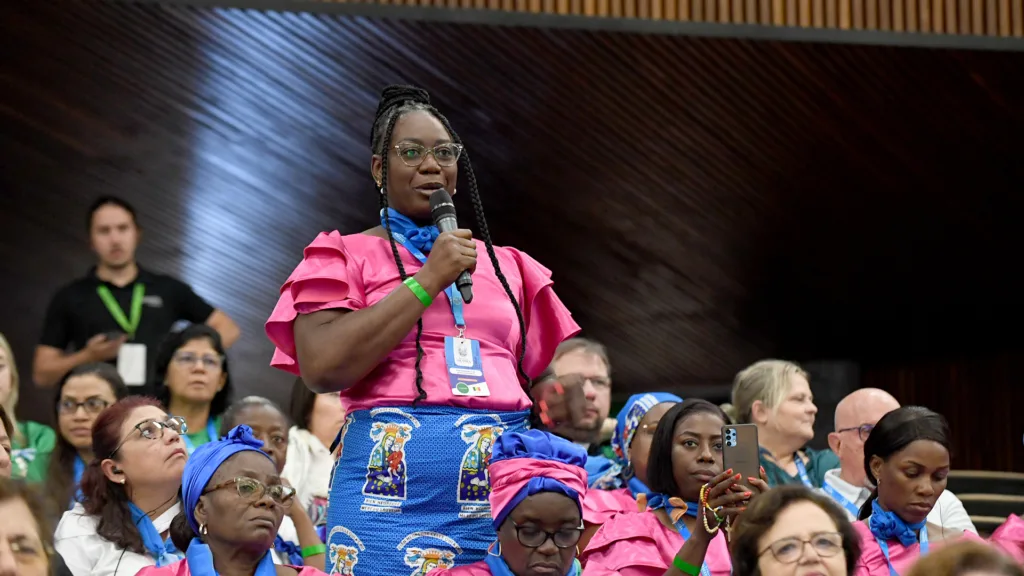
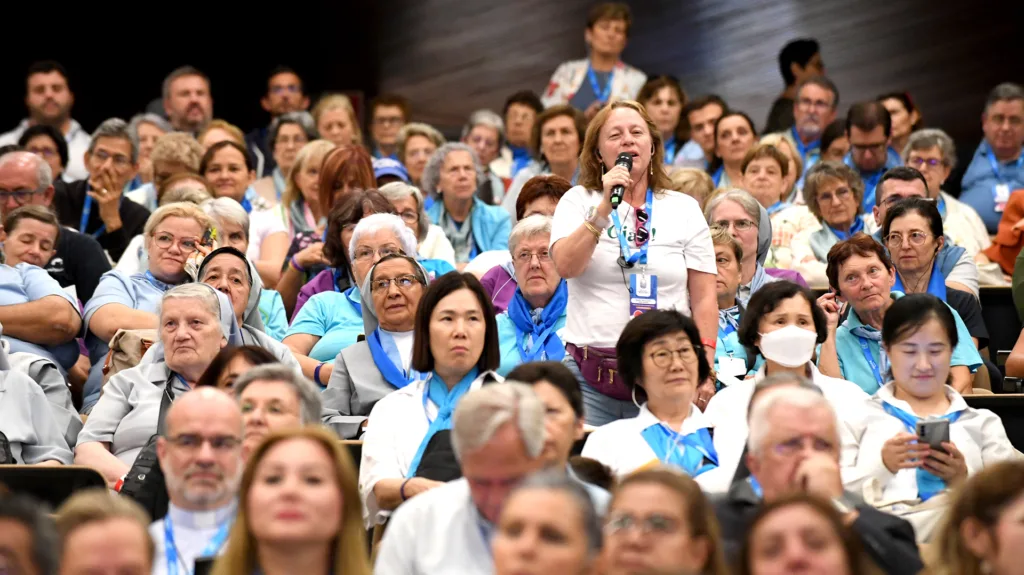
Life testimonies: Mary’s constant presence
At the beginning of the afternoon, the work resumed with the sharing of some testimonies.
Maria Rita Scrimieri, an Italian Salesian co-operator, shared the life of Blessed Alexandrina da Costa. In her words, Blessed Alexandrina da Costa is a 20th century ‘example of holiness’. Having experienced profound spiritual experiences – especially after the accident that left her paralysed – Alexandrina accepted her condition as God’s will, becoming a ‘victim soul’ for the salvation of souls. In 1933, she offered herself as a victim united to the Eucharistic Jesus, and from 1935, she asked the Pope to consecrate the world to the Immaculate Heart of Mary.
After experiencing visions of the Passion of Christ, she fasted completely until her death (for 13 years).
Beatified in 2004, her life bears witness to the charity and spiritual depth of her collaboration with Christ and Mary for the redemption of humanity. ‘Alexandrina lived to make the love of God and Mary known to the world,’ emphasised Maria Rita Scrimieri.
Maria Junifer Maliglig is an active member of ADMA in the Philippines, Northern Province. Having experienced a life marked by difficulties, Junifer presented a testimony of hope, showing that with Mary’s help it is possible to overcome all challenges and trials. ‘I have always experienced Mary’s transforming love in my life,’ she concluded.
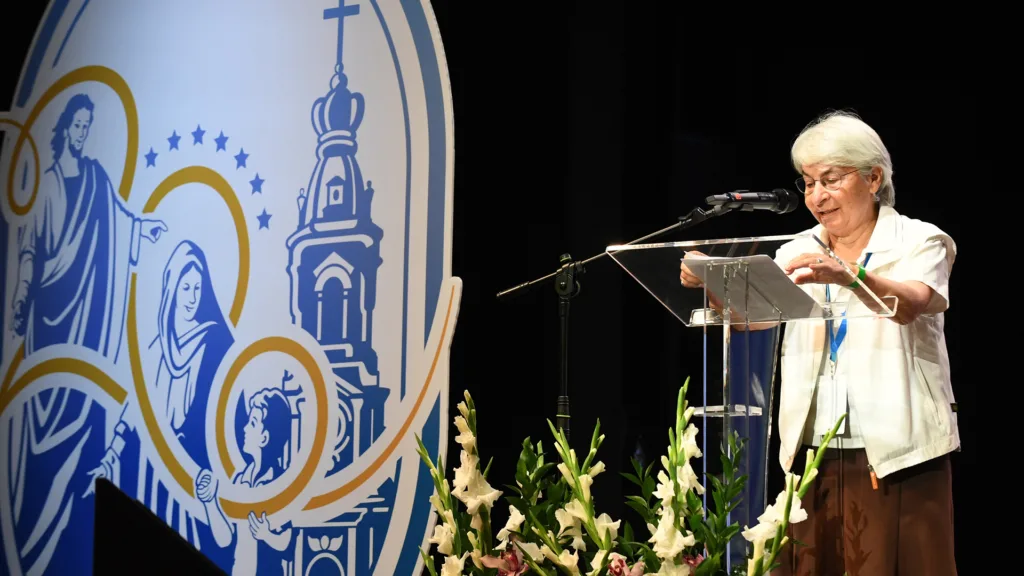
Moments of encounter, prayer and communion
During the afternoon, the participants had the opportunity to visit some of the most emblematic places in the Shrine of Fatima. Divided into language groups, they explored the main places of devotion and spirituality.
It was also possible to take part in the Way of the Cross, travelling the path of Jesus to the Cross. This moment of prayer and reflection was marked by songs, readings and meditations, which led the participants into a deep communion with Christ and his Mother, Mary.
Eucharistic Adoration, which took place in the Basilica of the Most Holy Trinity, was an invitation to silence and contemplation. The Basilica became a space for meeting God, during which everyone was able to present their intentions and give thanks for the graces they had received.
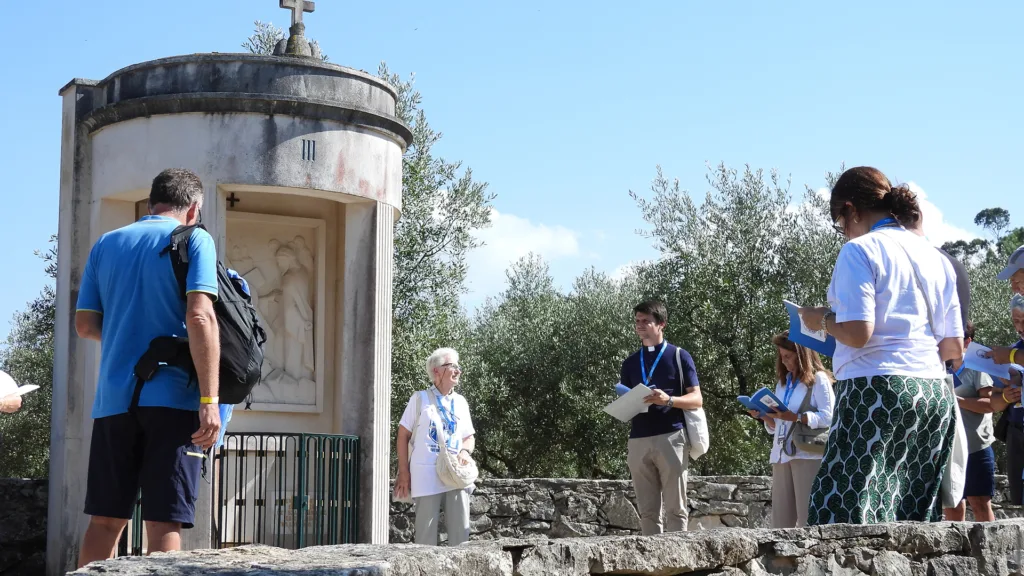
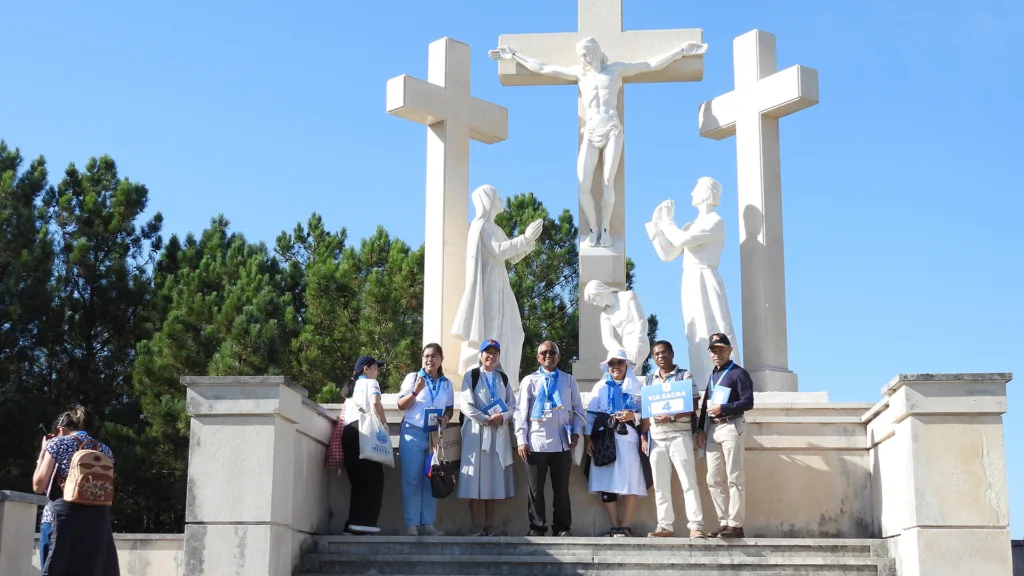
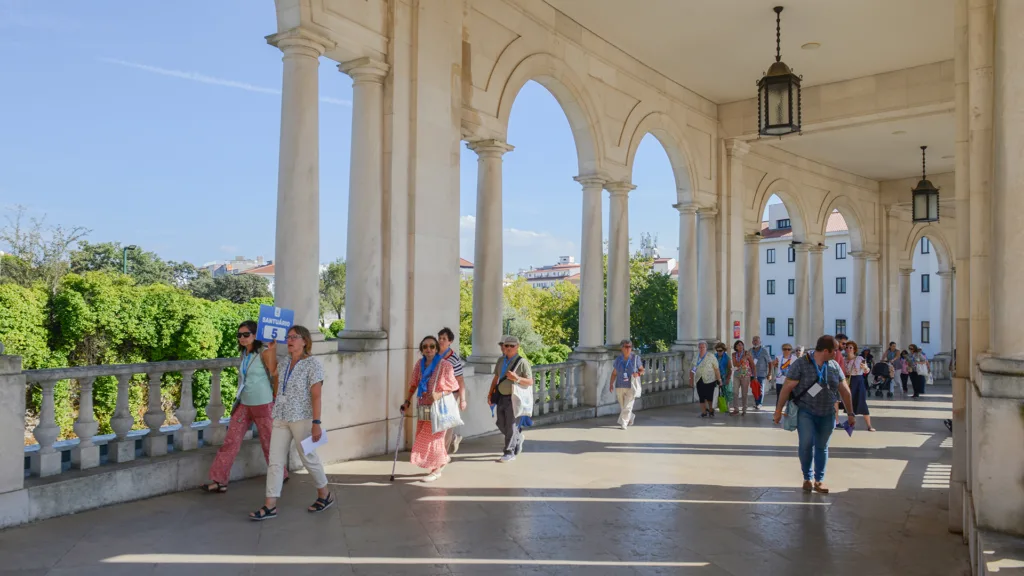
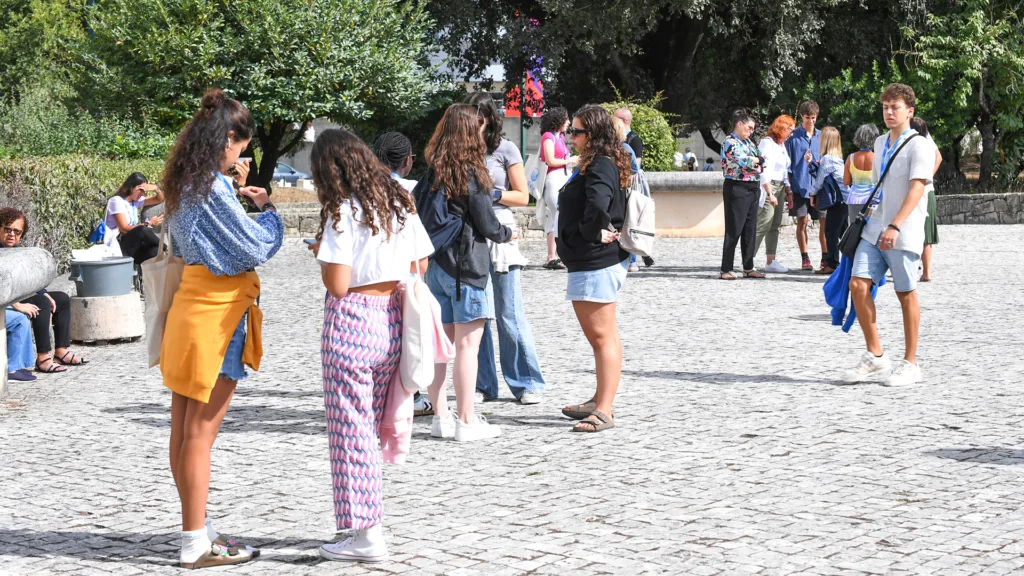
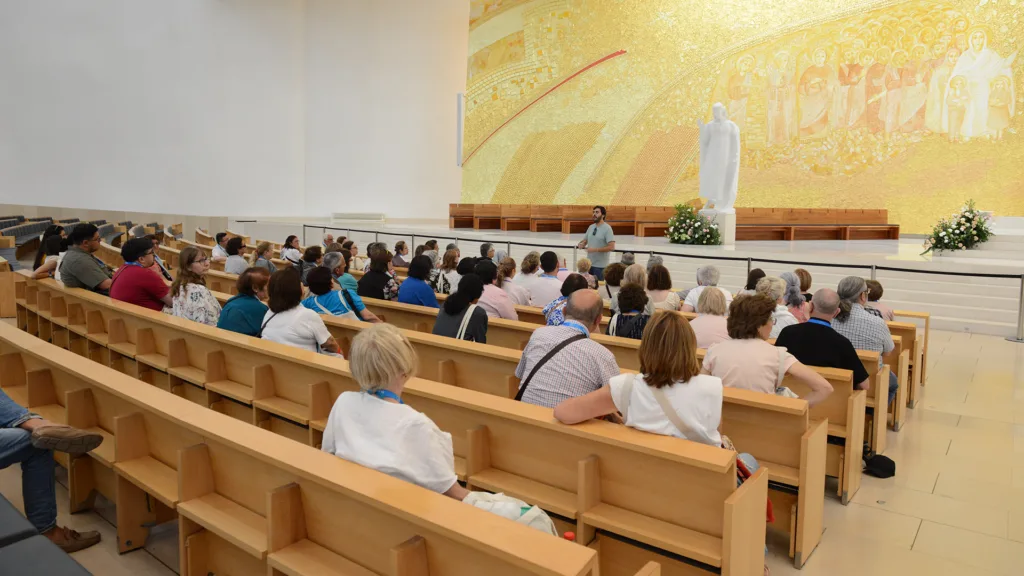
Celebration of art and faith
At the beginning of the evening there was a performance of the musical ‘Children of Yes’, which highlights the figure of Our Lady and her courage in accepting God’s proposal, generously giving her ‘yes’. An act of love and faith that changed the course of humanity.
‘Children of Yes’, a production by the Art & Sal group from the Salesian Youth Centre in Funchal, moved the audience, reminding them of Mary’s crucial role in the history of salvation.
The day ended with the traditional Good Night. In her speech, Sister Chiara Cazzuola, Mother General of the Daughters of Mary Help of Christians, emphasised the importance of looking as a way of ‘accepting the reality that surrounds us’.
Encouraging all those present to continue on their journey of faith and service with courage and enthusiasm, Sister Chiara left a challenge to the entire Salesian Family: to be in the darkness a ‘reflection of the eternal light’ that young people need in order to ‘look with confidence to a better future’.
